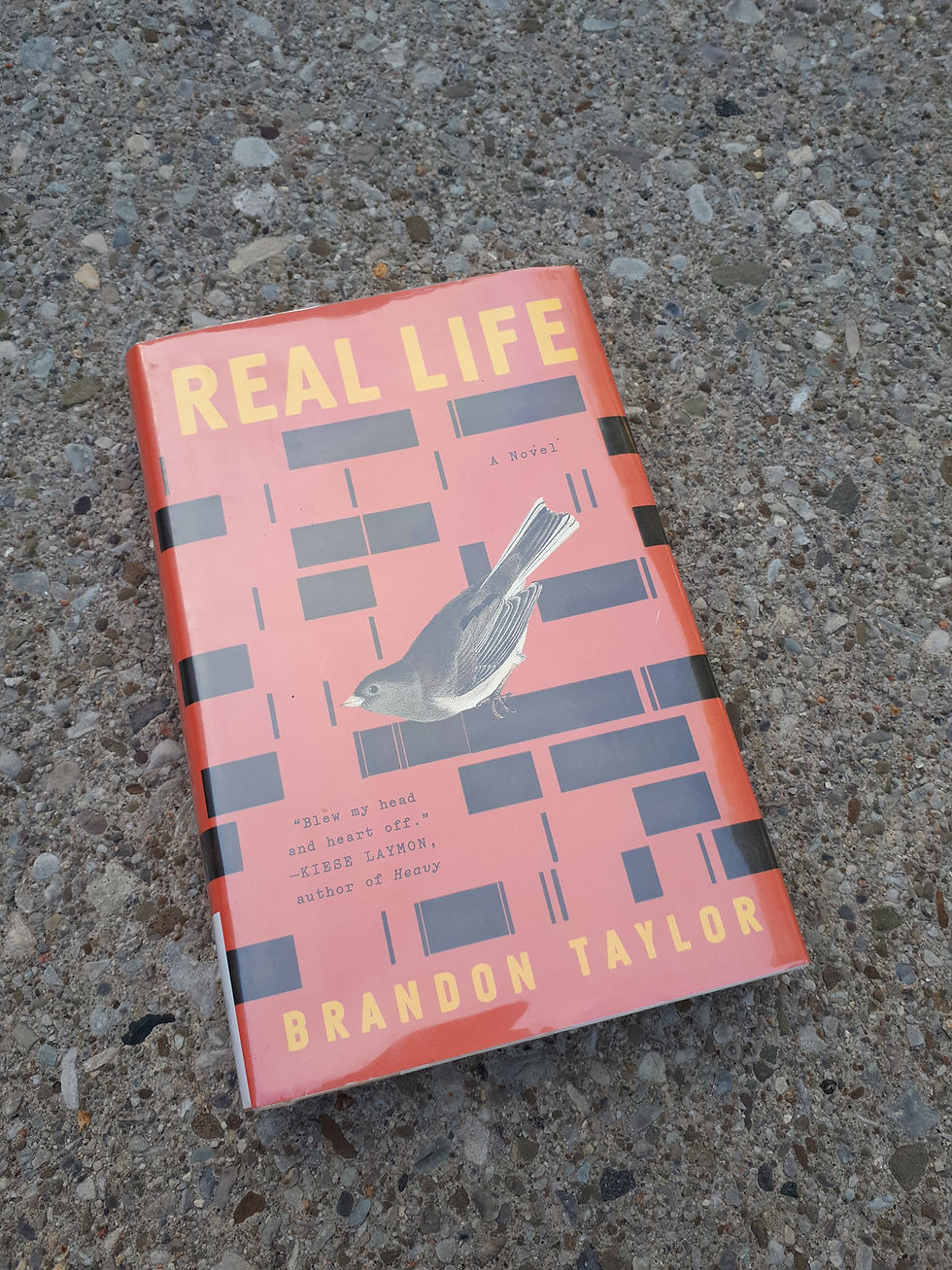Real Life Shows Why Discomfort and Taking Risks are Essential Ingredients in Anti-Racist Practice
- Riisa Walden
- Sep 18, 2023
- 2 min read
I checked out Real Life, a novel by Brandon Taylor, from our local public library when it showed up on a recommendations shelf during Pride month this summer. So I had no idea what to expect from this novel beyond the story centering on a queer, Black, male protagonist – Wallace – grappling with life as a PhD student in biochemistry at a Midwestern university in the United States.
Love public libraries! Love recommendations shelves!

I’ll leave you to discover more of the plot if you decide to pick up this skillfully written novel. What I will say now is that I haven’t read a book that has engaged me so deeply in a long time – I didn’t want it to end! Beyond the elegant writing, this novel hits the gut and offers an insightful study of microaggressions and lateral violence, for anyone who might be unclear about how these operate.
Real Life also reaffirms the importance of practicing the skill of leaning into discomfort and being an active participant in difficult conversations when it comes to practicing anti-racism.
After a dinner party where he, as the only Person of Colour, is subject to a racist exchange with another guest and member of their social circle, Wallace reflects about how this situation distances him from his romantic interest in the novel, Miller, a white man who was also at the dinner party and is also a member of their friend group:
“Wallace pauses, stills in Miller’s arms. There will always be this moment. There will always be good white people who love him and want the best for him but who are more afraid of other white people than of letting him down. It is easier for them to let it happen and to triage the wound later than to introduce an element of the unknown into the situation. No matter how good they are, no matter how loving, they will always be complicit, a danger, a wound waiting to happen. There is no amount of loving that will ever bring Miller closer to him in this respect. There is no amount of desire. There will always remain a small space between them, a space where people like Roman will take root and say ugly, hateful things to him. It’s the place in every white person’s heart where their racism lives and flourishes, not some vast open plain but a small crack, which is all it takes.” (Brandon Taylor, Real Life, p. 188)
This scene is a poignant reminder of the difference Bettina Love illustrates between being an ally and co-conspirator – that willingness “to take risks for somebody, to put something on the line … to use [your whiteness] in a way in which you are using your privilege” (Dr. Bettina Love explains what she means by a co-conspirator | C-SPAN.org).
Brandon Taylor does an incredible job through Wallace’s experiences in the novel of showing the irreparable harm that comes from refusing to speak up in these moments. Real Life reminds readers that to be white and anti-racist means being willing to risk introducing “an element of the unknown” and willing to disrupt the comfort of other white people and our own.

Comentarios